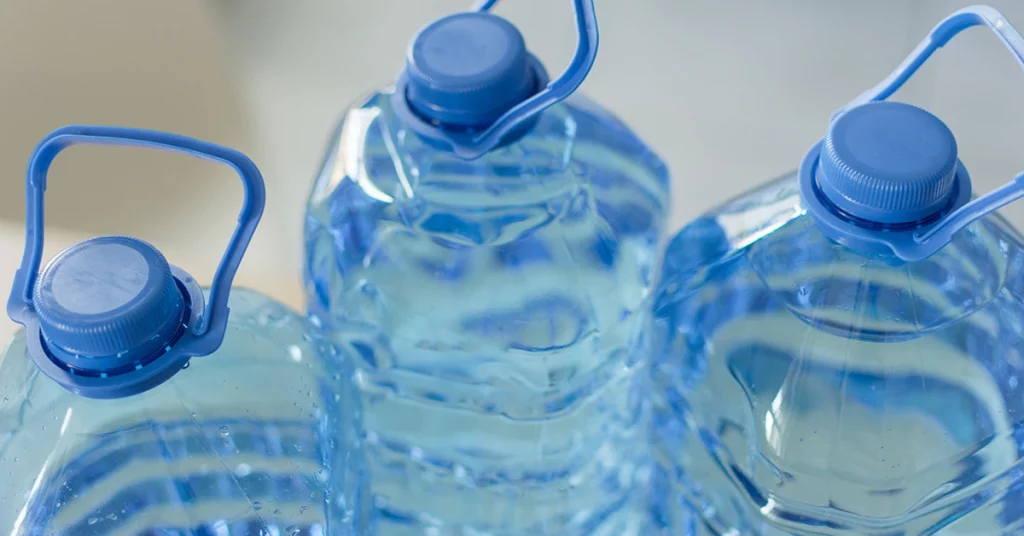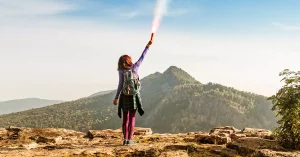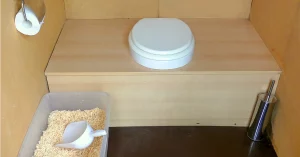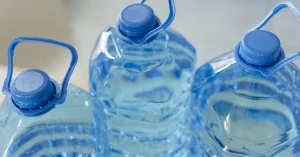It’s not a bad idea to have a water supply on hand for natural disasters or other emergencies, but understanding the basics of storing water is vital to ensuring that your supply can help you and your family in the long run.
Generally speaking, each person will drink at least one gallon of water per day. However, you might want to have a little more on hand just in case of emergencies.
If you’re going to be super prepared for anything that happens, consider storing several gallons of water for your family, at least enough for two weeks. It might take you several weeks to get the proper amount of water and also be able to figure out places to store it.
So, how much water to store for prepping depends: In the long run, water is much more important than food, which is why proper water storage is so important. If you’re new to prepping, make sure that water is your priority.
How Much Water Should I Store for Prepping?
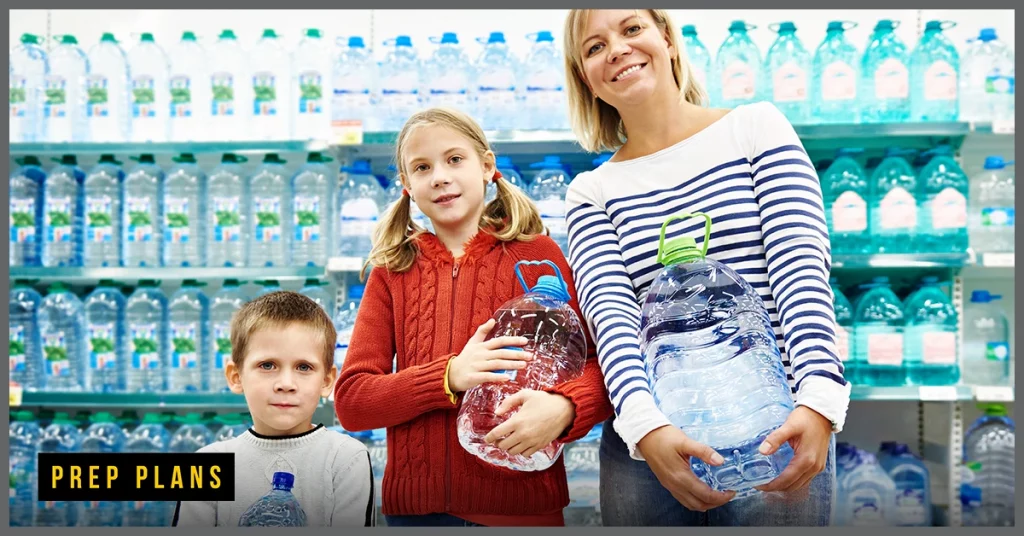
One of the best things you can do is have a lot of bottled water on hand. Bottled water is your best source of clean, potable water, and it can last for a long time if you store it properly. If you’re storing water for a family, there are several things that you should keep in mind.
- Store at least one gallon of water per person per day
- Store extra water for pregnant people or those with special needs
- You might need more water in hotter climates
- Make sure that you understand when your water is expiring
- Change your water supply at least twice a year
How Much Water Does One Person Need To Survive for X Days?
According to Mayo Clinic, a person needs between 2.7 – 3.7 liters of water a day, which breaks down to roughly one gallon. Simply multiply this with the number of days that you think you’ll be without access to water.
How Much Water for a Family of 4, 6, 8?
Every person in your family should have one gallon of drinking water per day, plus extra for bathing and washing dishes. To be on the safe side, allocate 500 gallons of water to each person each month, and multiple it as needed.
Storing Your Drinking Water
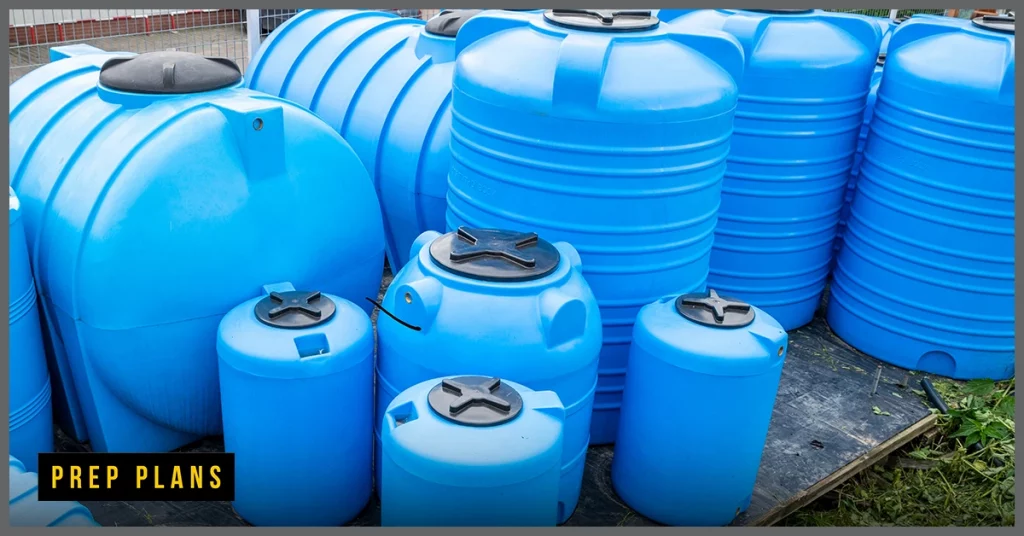
When it comes to water storage, your containers definitely matter. Make sure that you use sturdy, FDA-approved containers for your water. If toxins are a concern, look for containers made of BPA-free plastic (glass would work, too, but is very heavy and not as portable).
You can generally find these containers online or at any camping or prepping stores. If you have any questions, make sure that you ask them in advance. It’s far better to be over prepared than under prepared, and you don’t want your precious supplies to spoil.
Ensure that you’re only using your container for water storage and that your water is in containers that close correctly. Making sure that your supply is water and airtight is the first step to successfully storing and keeping your water. Also, make sure that your containers are durable and easy to access.
Some people make the mistake of reusing other containers for their water storage. Unfortunately, anything that once held chemicals or other non-edible items can leach harmful contaminants into your water, especially if you’re storing it for several months.
If you are using a container that previously held something else, make sure you wash it thoroughly to make it safe and try to use new containers whenever necessary.
Getting Started
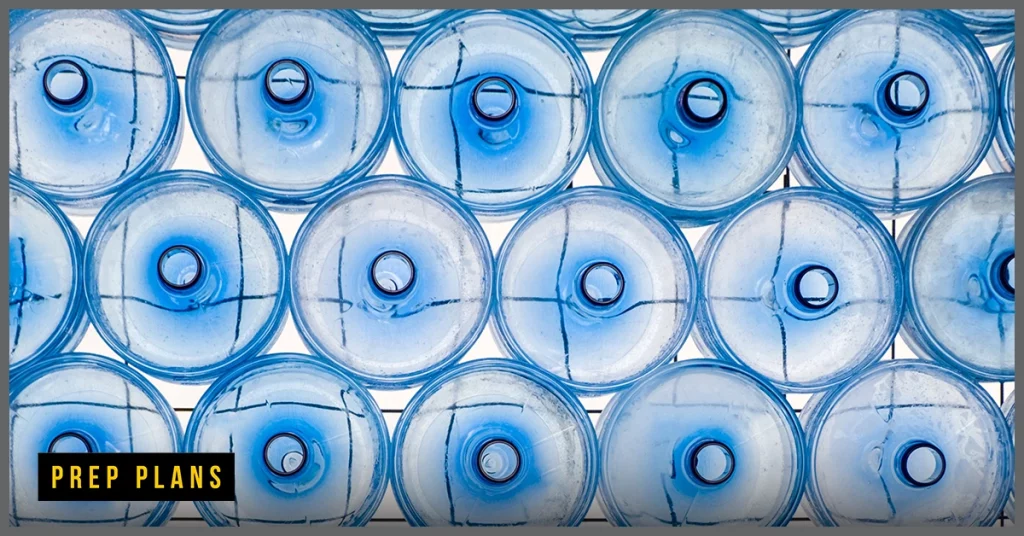
The first thing that you have to do is appropriately vet your container. Then, sanitize it thoroughly with chlorine and water, and make sure that you clean it out thoroughly before filling it with your water. Water storage containers should be bacteria free and clean before starting the process. Water purification methods can be done in an emergency and aren’t difficult to do.
If you’re using new containers, it helps to clean them out before using them for water storage, too. This will help you keep your water for several months and avoid any problems. In addition, making sure that you clean and sanitize your containers is the first step to keeping your family safe in case of an emergency.
How To Sanitize Water/Keep It Drinkable When Storing?
You can sanitize your water with chlorine. Don’t add too much; only one teaspoon per quart is good. Then shake the bottle so that the inside is fully sanitized, dump out the chlorine water, and put fresh water in the bottle.
Proper Water Storage
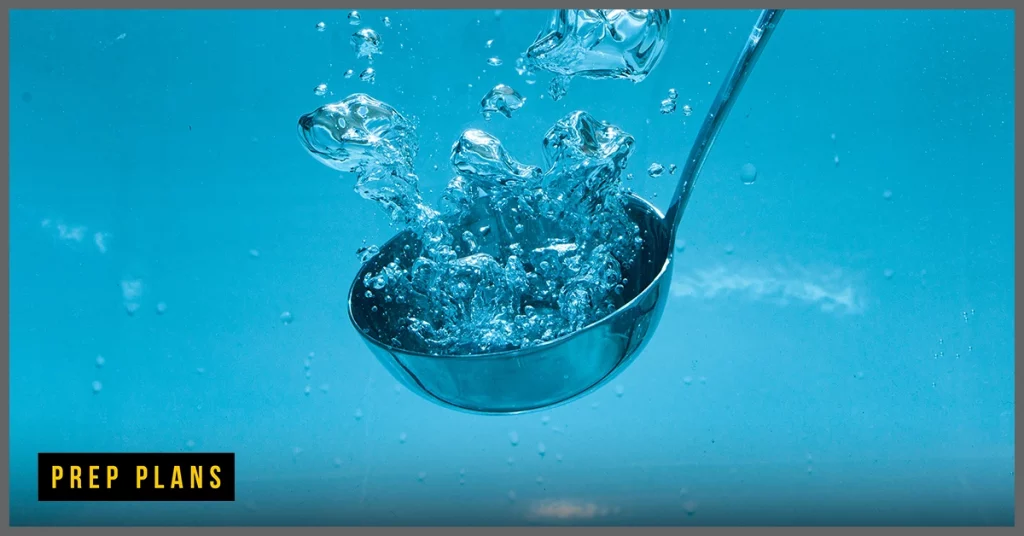
If you’re stockpiling water, you’ll want to ensure that it’s good for the long run. Gallons of water can spoil over time, so make sure that you keep it in air-tight containers in an enclosed and temperature-controlled space.
When it comes time to use your water, designate a specific device to take it out of the container. Ladles or clean scoops are good for getting drinking water out of your storage, as long as you thoroughly clean them afterward. Only use your ladle or water, and avoid mixing it with any food or non-food items that could contaminate your supply.
Avoid using your hands to scoop water or dumping water directly into your hands. You could spill excess water and hurt your water supply in the process. It’s vital to keep all water storage containers sanitary at all times, especially if you’re storing water for several months on end.
Labeling Your Water Supply Properly
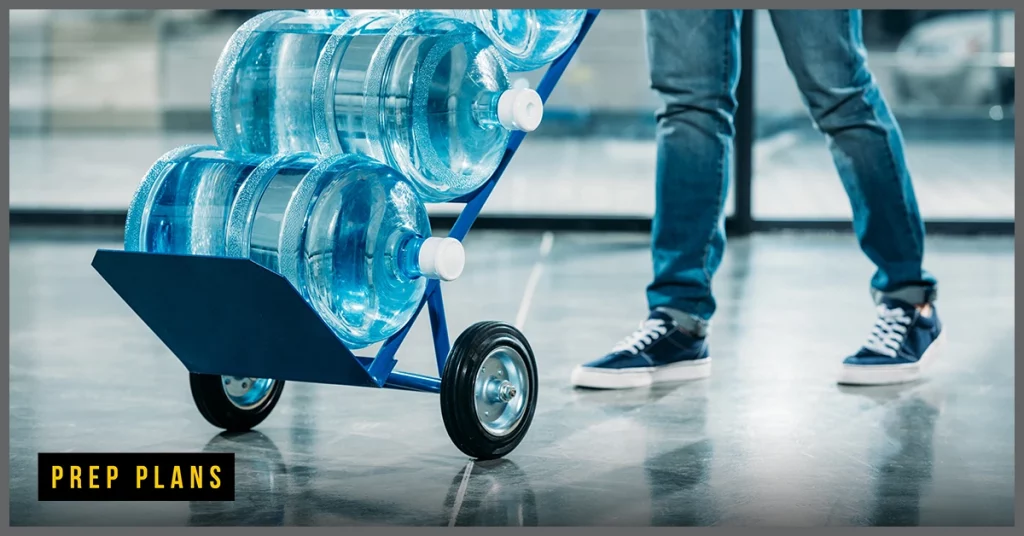
Make sure that everyone in your family knows where your water supply is and the rules for using it. For example, label your water with the date you bottled it and what it is. Also, make sure that your water storage is far away from other substances, especially cleaning supplies and things like gasoline.
Alternative Water Storage Methods
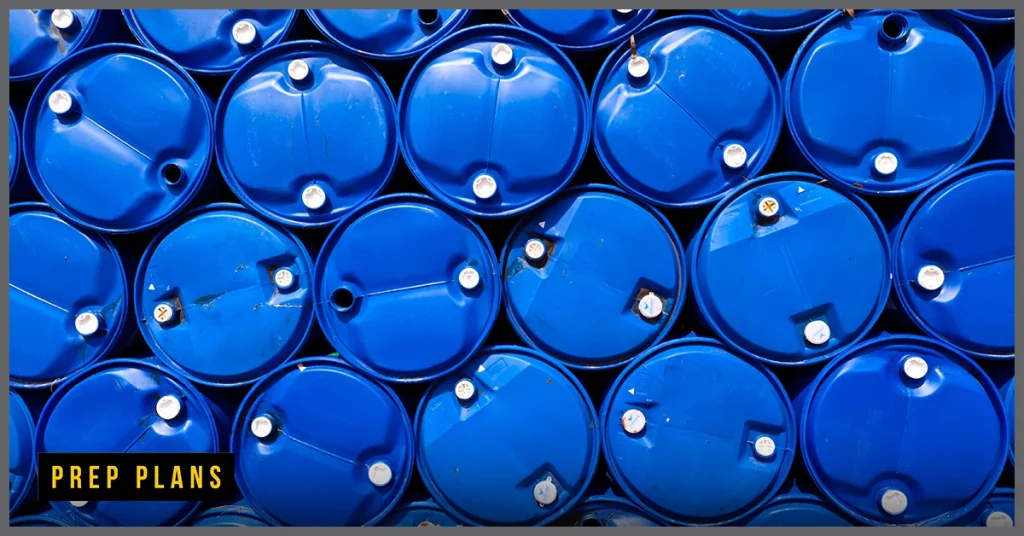
Buying a lot of bottled water is one way to store water for your family. Bottled water comes in water containers that are already clean and pesticide-free.
You just need to remember to keep them in a temperature-controlled place to protect you and your family’s drinking water. You can also buy water barrels or designated jugs for your water. Water barrels are generally sanitized and easy to use, and water barrels also keep your water fresh for a long time.
It’s tempting to think that bottled water keeps infinitely, but you still want to follow the same storing water protocol with it. Specifically, bottled water supplies need to be changed every couple of years, even if you keep them at optimal temperatures.
You can also use water barrels or large plastic buckets to collect rainwater. Rainwater harvesting is a very easy and effective way to up your water storage and supply without spending a lot of money.
Rainwater can net you a ton of stored water and contribute heavily to your family’s drinking water in the event of a catastrophe. Plus, rainwater is pure, delicious, and will keep just as well as other types of water if you store it properly. However, there are some guidelines around drinking rainwater.
Frequently Asked Questions
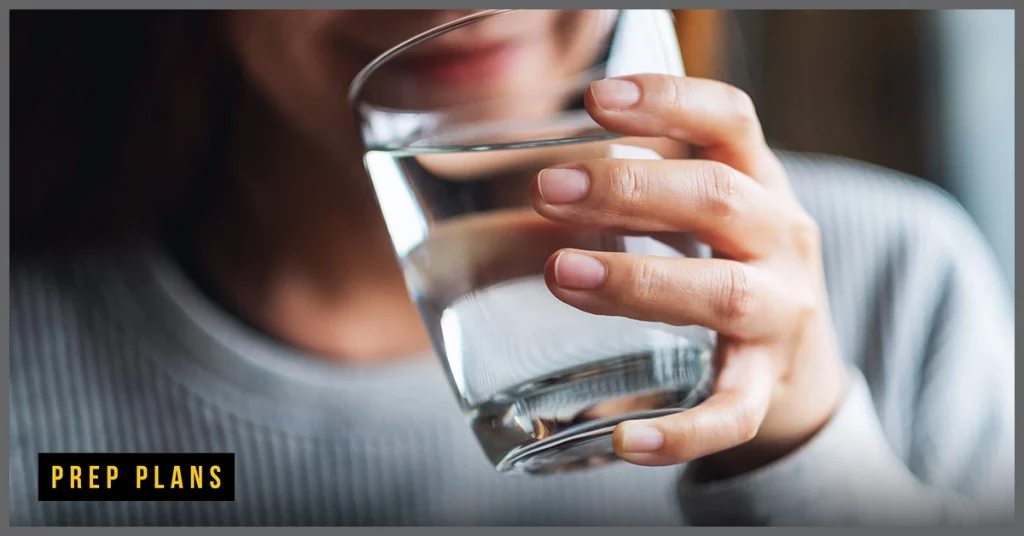
If you’re new to the world of prepping and water storage, it’s natural to have some questions about how to handle stored water and what to do with it. These frequently asked questions and answers will help you maximize your drinking water supply and prepare you and your family for anything that comes your way.
What kind of container should I use for my water?
Although you can use many different containers for your water storage, it’s helpful to know the pros and cons of each. For example, many experts believe that you should store your water in opaque plastic, metal, fiberglass, or glass jugs.
The important thing is to ensure that your gallons of water are correctly sealed to keep out any contaminants or bacteria. Regardless of the water storage vehicle that you use, it’s crucial that it’s air-tight and that you can open and shut it without getting anything else inside.
What about bottled water?
Buying bottled water is a great way to store water for your family. Bottled water tends to have a reasonably long shelf life. It’s good to mix pre-packaged bottled water with water in the storage container of your choice so that you always have something on hand. Keep your bottled water in a secure, temperature-controlled location.
How can I make my water last longer?
Keep your emergency water away from any food preparation–especially where you prepare and preserve meat— or chemicals to make it last for longer. Ensure that your water is appropriately labeled, use a food-grade container, change it frequently, and use many different methods like rainwater harvesting for the best results.
Although it’s not a good idea to drink flood water, you can certainly consume rainwater. Contaminated water can make you and your family sick. Keep your water out of direct sunlight as well for the best results.
Remember to calculate how much water your family needs too, and allocate one gallon per person for each day. This way, your emergency water will last for longer, and you will always have clean water on hand.
Conclusion
Ensuring that you and your family always have clean water and learning how much water to store for prepping is relatively easy if you understand how to properly keep water.
Water is one of your top emergency supplies, especially in a hot climate. So get started on your water storage preparation today and have the peace of mind that your family is taken care of in the future.

